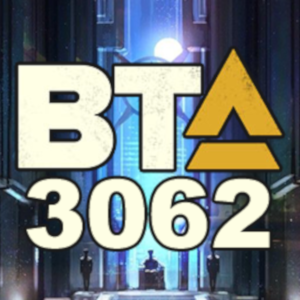Trial (Clan)
The Six Trials of Combat were combat rituals Nicholas Kerensky implemented during the formation of the Clans as a way of settling disputes. While not wanting to see civil war consume his new society as it had the previous one, Nicholas also viewed warfare as part of what it meant to be human. Rather than outlaw fighting altogether he sought to limit it through regulation and thereby lessen the "collateral damage" which might normally occur during a total war. Trials were overseen by the respective Clan Council or Grand Council to ensure fair play and that all rules were followed.[1][2][3][4]
In practice Trials were used in relation to members of the same caste, such as a dispute between two warriors. In matters involving two different castes or two different Clans, the Clan Council or Grand Council would render judgment. Although there may appear to be a conflict of interest if a Clan Council had to resolve a dispute between a warrior and a scientist or merchant, in most cases the resulting decision was seen through the Clan viewpoint as fair and honorable to both sides.[1]
Many Trials began with a batchall as one party formally announced their challenge to another.[4] Many also involved a Circle of Equals as a designated battlefield, although this was more common with Trials of a personal nature, i.e. a duel between two individuals.[2][3] While primarily martial in nature, some Trials were adapted for and adopted by members of the civilian castes as a way of settling disputes.[1]
Officially there were six Trials of Combat, each listed below. In addition were several other rituals often associated with and known as Trials themselves: the Ritual of Abjuration, the Rite of Absorption, and Ritual of Adoption.[1]
Contents
Trial of Grievance[edit]
A Trial of Grievance was fought when a dispute arose between individual warriors. Before this Trial can be fought both parties had to go through a two-step process before official sanction to fight was given: they must first attempt to resolve the conflict between themselves or through their immediate superiors, and if that fails they must petition to have their differences heard by their Clan Council (or Grand Council in certain cases). Only if the relevant council failed to resolve the dispute were the involved parties allowed to fight a Trial of Grievance.
Trial of Position[edit]
Trials of Position were used to determine career advancement for members of the warrior caste, of which there were three types. Training Trials were conducted when cadets join their sibko and used to continually test their aptitude as a future warrior. The Blooding was the final Trial of Position a cadet fought in, and determined whether they would become true warriors or be relegated to the civilian castes. Finally each warrior had to undergo a Trial of Position - typically on the anniversary of their Blooding - to prove their continued combat effectiveness and potentially earn a promotion, although direct combat experience was often deemed sufficient in lieu of a formal Trial.
Trial of Bloodright[edit]
Trials of Bloodright determined the assignment of Bloodnames. Being a descendant of a Bloodnamed warrior gave a warrior the right to participate in the Trial to earn that Bloodname (and due to the Clan eugenics program, there were a lot of potential warriors for a particular Bloodname at any given time). By Clan law, at any one time there were up to 25 active warriors with the same Bloodname (though there could be less due to Reavings) and when one died, a Trial of Bloodright was held to determine who should replace the Bloodnamed warrior.
Trial of Possession[edit]
Trials of Possession were used to settle disputes of ownership between Clans over particular assets and as such were the most common. These assets could range from physical property such as tracts of land or military equipment to genetic legacies of particular bloodlines. This Trial allowed Clans to war on each other while minimizing military asset wastage and the danger to noncombatants.
Trial of Refusal[edit]
A Trial of Refusal was used when a member of a Clan Council or the Grand Council wished to challenge and reverse a decision made by the legislative body, preventing potential abuses of power by forcing the winning side to defend their decision through combat. The exact forces involved in fighting this Trial varied based on the difference in final voting between the winning and losing sides. Additionally these Trials could also be carried out when a subordinate wished to refuse the order of a superior.
Trial of Annihilation[edit]
A Trial of Annihilation was the most extreme punishment the Clans could declare, going beyond the question of right and wrong. A Trial of Annihilation virtually guaranteed that the warrior would die and that his genes would be eliminated from the Clans' gene pool. This Trial could only be invoked by a unanimous vote of the appropriate council, and only for the most heinous crimes against Clan society.


